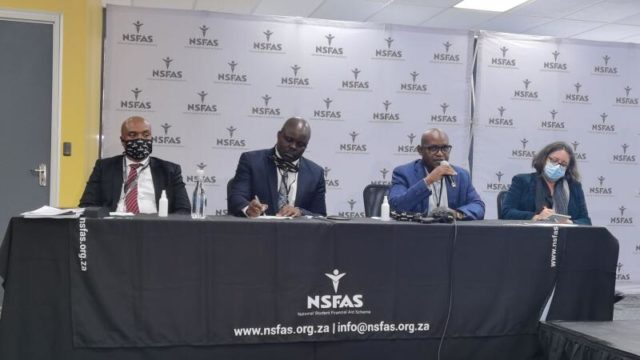Students have slammed the NSFA administration processes citing, among others, the delays in the disbursement of funding and the slow process in the delivery of laptops by the entity.
Cape Town – Students have slammed the National Student Financial Aid Scheme’s (NSFAS) administration processes citing, among others, the delays in the disbursement of funding and the slow process in the delivery of laptops by the entity.
This, as the Parliament’s portfolio committee on Higher Education, Science and Technology conducted a site visit to the NSFAS offices this week, to monitor the administration and disbursement of funding and allowances to students.
SA Students Congress (Sasco) spokesperson Luvuyo Barnes said the entity should intervene and fix the delays on student allowances, and should have a proper planning to improve the gathering of databases from TVET Colleges.
Department of Higher Education and Training (DHET) acting deputy director-general Thandi Lewin said the entity has worked very hard to meet the student demands.
Lewin said that the meeting they had was very helpful in stabilising the work of the entity.
NSFAS chief executive Andile Nongogo said the NSFAS board requested to meet the committee to introduce itself, given that it was appointed on January 1, and that the board wanted to share its strategy with the committee to turn around the organisation and to pledge its commitment of co-operating with them, as an oversight structure of Parliament.
Nongogo said it was public knowledge that in 2018, the scheme was converted into a full bursary fund, from being a provider of student loans.
He said, given that there was a short time to execute that new mandate, the scheme was not appropriately designed and prepared to handle the change.
“Consequently, this led to operational challenges that are widely known, which ultimately contributed to the organisation being placed under administration,” said Nongogo.
He said, despite those challenges, the scheme continued to grow and has contributed to changing the lives of many.
He said, in 2017, there were 254 826 students funded, and 40 564 graduates were produced. In 2018, those numbers grew by 41.84%, leading to 361 449 students funded, and 59 249 graduates were produced.
“In the current tenure of the new board, we have seen achievements, where 1 263 671 students have been assessed as eligible for funding, 712 428 being first-time entry students, and 551 243 being continuing students, split between 323 445 TVET and 940 226 universities.”
Committee chairperson Philly Mapulane said, arising from the engagement with the new board and the new chief executive, the committee appreciated the commitment made in turning around the entity, after a disastrous period of administration by Dr Randall Carolissen, which was characterised by allegations of maladministration and corruption, nepotism, regressive audit outcomes, and low staff morale.
Mapulane said the committee decided to review its decision to institute an inquiry, in order to allow the new board space to deal with the challenges emanating from the ruinous administration period.








